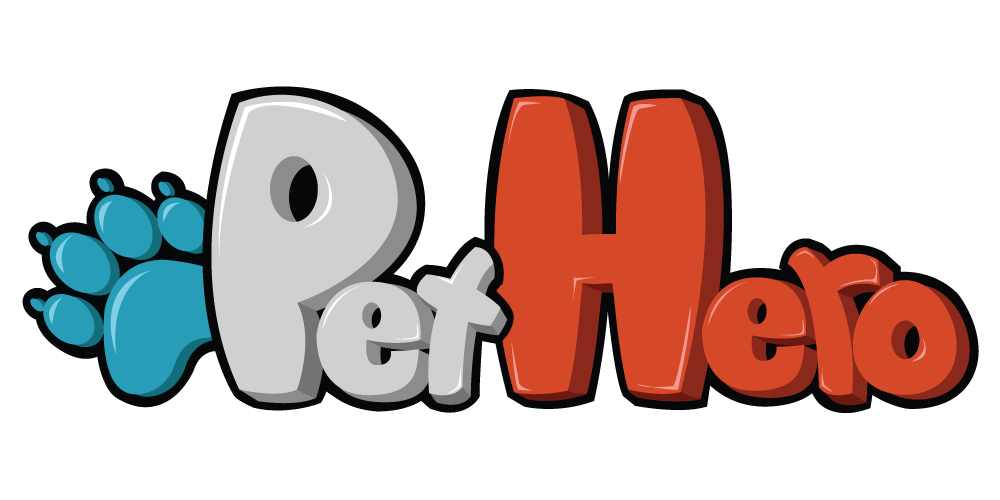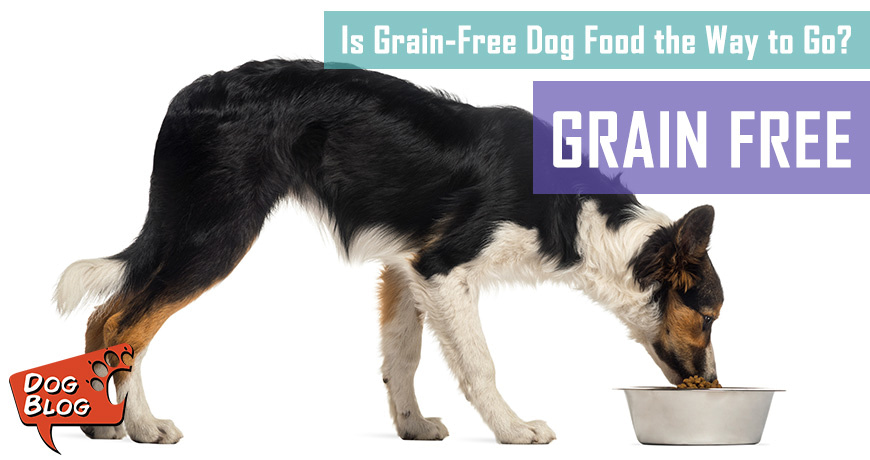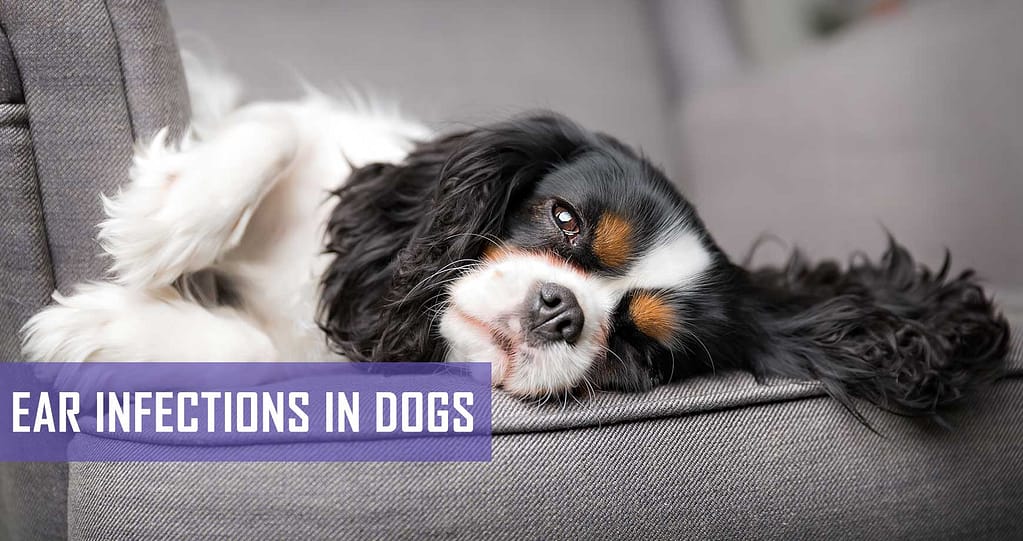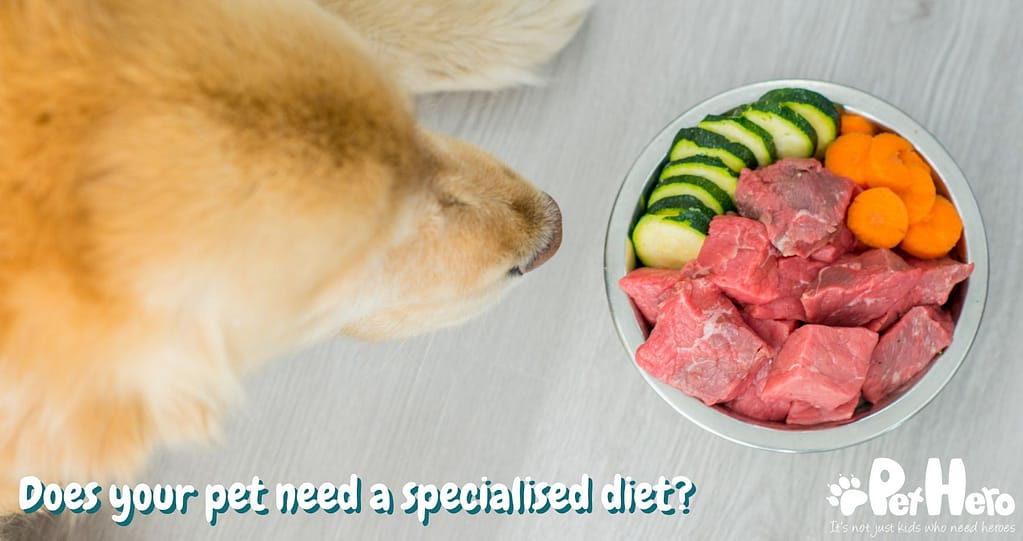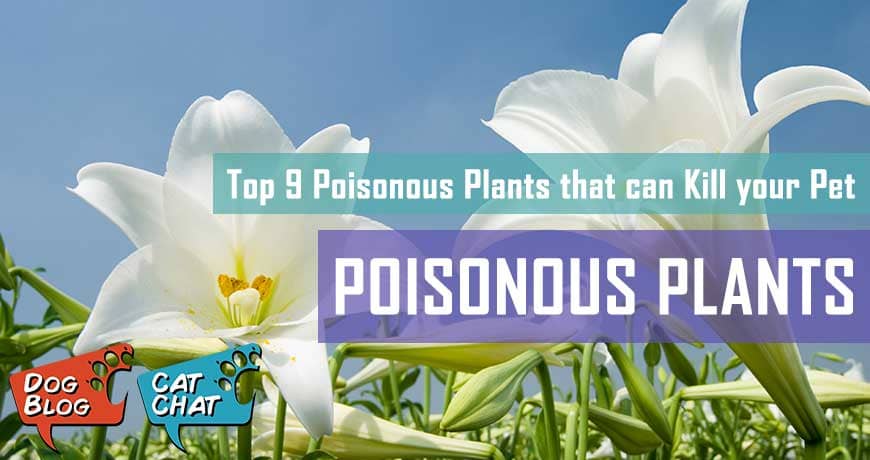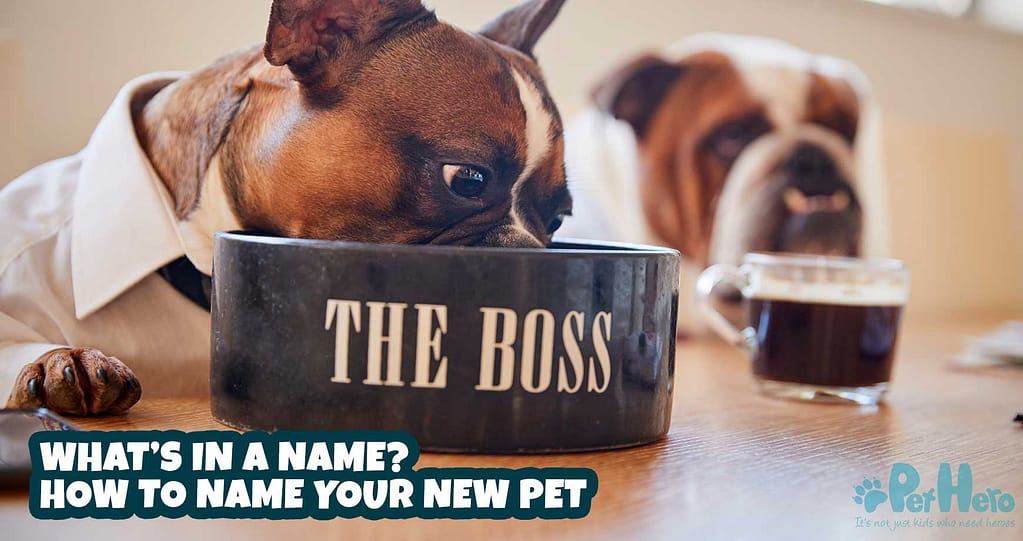Before dogs became domesticated, their wolf ancestors would hunt and enjoy a protein-rich diet. Fast-forward around 30 000 years and this hunger-busting has now changed to people feeding their pet dogs from a big bag of food scooped into bespoke dog bowls . Mass-produced dog kibbles were introduced around World War II, with inexpensive ingredients like corn, wheat and barley to keep dog food manufacturing costs down. Even today, corn and wheat are still listed as ingredients in dog food.
Dogs do need carbohydrates as a source of energy, and grains are an appropriate source of nutrients and fibre. However, some dogs may suffer from food allergies that prevent them from properly absorbing all the nutrients they need for good health.
What is grain-free dog food?
As the name suggests, grain-free dog food is dog food that does not contain grains. However, some grain-free food can still contain less common grains, or grains that are less likely to cause food allergies in dogs, such as rice, oats, barley or corn. If your dog is allergic to certain grains, it is essential to read the dog food labels and confirm with your veterinarian whether a grain-free dog food is appropriate for your dog.
How do I know if my dog needs grain-free food?
If your dog has an allergy to grain proteins, he may experience the following symptoms after consuming those allergens:
- excessive flatulence
- loose stool/diarrhoea
- rash and skin irritations
- chronic licking, chewing or biting to relieve an itch
- vomiting
- frequent ear infections
- scooting
Schedule a veterinary appointment so that your vet can diagnose and confirm whether your dog has a food allergy. Ask them to recommend an appropriate alternative food, and find out if your dog is a suitable candidate for grain-free food.
Breeds at higher risk for food allergies
The following dog breeds may have a more significant chance of developing food allergies:
- retrievers
- boxer
- Chinese shar-pei
- cocker spaniel
- collie
- dachshund
- Dalmatian
- Lhasa apso
- miniature schnauzer
- soft-coated wheaten terrier
- springer spaniel
- West Highland white terrier
That’s not to say that these dog breeds will have a food allergy; just that these breeds are more susceptible.
What are the benefits of grain-free dog food?
Most vets recommend that grains and carbohydrates should make up a small portion of a dog’s diet. Many grain-free dog foods are high in protein and animal fats, with a lot less by way of carbohydrates. High-protein food is more comfortable for your dog to digest, but they do still need some fibre and carbs.
The benefits of grain-free dog food include:
- keeping dogs fuller for longer, resulting in eating less frequently
- reducing canine food allergies
- providing more energy
- fewer and smaller stools
- healthier skin
- shinier coat
- less shedding
- reduced flatulence
Is grain-free food right for my dog?
Changing your dog’s diet is a huge decision. If your dog is thriving on his current diet and he is healthy and happy, it is not recommended to change your dog’s diet. A good rule of thumb is to always consult with your vet before you make significant changes to your pet’s diet.
When considering a grain-free diet for your dog, look at the ingredients of your current dog food on the label or the manufacturer’s website. If grains such as corn, wheat or soy are the first ingredients, you can look at gradually switching to a protein-rich food.
Tips for going grain-free
When you decide to change your dog’s diet, it is best to slowly introduce grain-free, high-protein dog food to their diet, by mixing a small amount of it at a time into their current food. Gradually increase the amount over a few weeks. This allows your dog’s digestive system to adjust to the new food. If you switch too quickly, it could cause digestive upset.
During the transition period, it is essential to keep an eye on your dog’s stool, to ensure they are not constipated or suffering from diarrhoea. If you see any symptoms like itching, hair loss, lack of interest in eating or drinking water, it is essential to contact your vet to find out what to do next.
Should puppies eat grain-free dog food?
High-protein diets can be hard on your puppy’s kidneys, which is why early stage dog foods provide balanced nutrition. This can be a conundrum if your puppy has a sensitive tummy. However, some grain-free dog food brands have specific formulations for all life stages and dietary needs, so choose wisely when selecting the right puppy food for you puppy. Getting your veterinarian’s recommendation won’t hurt either.
What is the best grain-free dog food?
The best grain-free dog food is the one that agrees with your dog’s digestive tract and supports their overall health and wellbeing. Browse our grain-free products category and choose the best dog food for your special pup.
